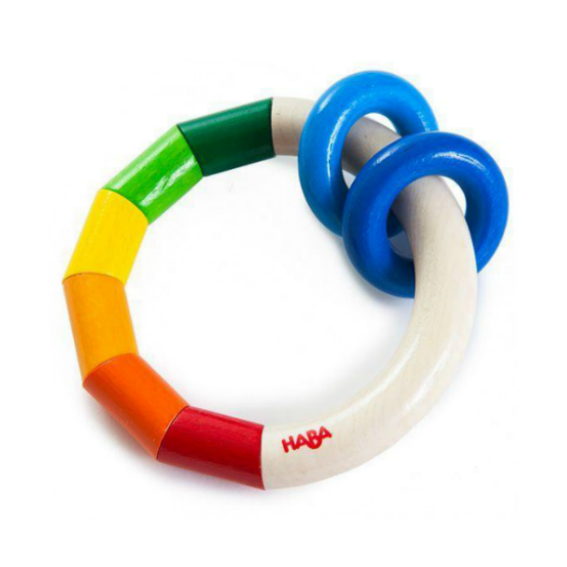There are greater strategies to indicate youngsters to share than compelled sharing.
And
if we’re honest, there’s another reason we get aggravated when youngsters fight over toys. When our children look like failing at generosity, we
actually really feel like we’re failing at our job of civilizing these grabby childish instincts into an excellent explicit particular person.
So in most households, the unwritten protection is that kids are anticipated to share, or on the very least take turns, with most toys. The mum or dad decides
when one baby has had a toy prolonged adequate, typically primarily based totally on how loud the protest is from the sibling or good pal. Whereas that seems expedient,
it reinforces opponents between siblings, dis-empowers every kids, and teaches kids that within the occasion that they fuss, they get their method. And
it undoubtedly just isn’t good for the mum or dad to constantly must step in.
It’s possible you’ll be relieved to review that there are totally different strategies to cope with the complete thought of sharing, that educate additional constructive lessons, and that
get you out of the place of select, jury and police officer.
Let’s start with the premise that we want our children to grow to be generous individuals who discover themselves able to uncover and reply to the desires of others. In actual fact, we moreover want our children to have the power to satisfy their very personal desires, which embody pursuing their very personal work and play, because of that’s
how they develop mastery.
There’s an obvious rigidity proper right here that parents should acknowledge. We don’t want our youngsters to actually really feel they should interrupt what they’re working
on to “give” one factor to a special baby just because the other baby asks. Alternatively, we do want our baby to notice when one different
baby would love a flip, and to guarantee that baby will get a flip. And when one other particular person has one factor that our baby wants, we hope that she’ll
be able to administration her impulses so she doesn’t seize it, nonetheless instead will use her phrases to work out an affiliation so that she’s going to be capable of use the
object eventually.
In several phrases, we want our baby to advocate for her private desires, to respect the desires of others, and to have the power to delay gratification to attend
for what she wants. Correct?
All of which suggests we’ve to re-think how kids “examine to share” and what they examine as soon as we energy them to share.
Nancy Eisenberg, a primary researcher on kids’s social progress, says that kids turn into additional generous by having the experience of
giving to others and finding out how good that feels.[i] There is a catch, though, says Eisenberg. The experience ought to
be voluntarily chosen by the child. If we energy kids to share, they stroll away resentful, not feeling generous. Not surprisingly, they’re
a lot much less extra more likely to share after that.
So what if we merely let the child who has the toy resolve how prolonged she desires it, after which give it to the other baby when she’s ready? We’re in a position to
title this “self-regulated turns,” or in baby lingo “prolonged turns.”
You probably can see the obvious disadvantage with this idea. What in regards to the poor sibling who has to attend for his flip? You probably can anticipate this baby to protest
loudly, which is inconvenient for you and miserable for him. And previous that, it hardly seems truthful that one baby has to attend whereas the
totally different makes use of the coveted toy for as long as she pleases—does it?
Nevertheless probably we’re actually instructing greater lessons, that may help youngsters examine to share additional readily, and to work out disputes additional independently.
Let’s take into consideration the sibling who’s desperately unhappy prepared for his flip for what may actually really feel like eternally. We now have two selections.
Risk #1- We inform the first baby he’s had the toy prolonged adequate, take the toy away, and offers it to the sibling. The second baby learns:
- If I cry loud adequate, I get what I would like, even when one other particular person has it.
- Mom and father are answerable for who will get what when, and it’s arbitrary, counting on their whim and the best way dramatically I encourage for my flip.
- My sibling and I are in fastened opponents to get what we would like. I don’t like him.
- I assume I’m a greedy explicit particular person, nonetheless that’s what I must be to have the ability to get what I deserve.
- I had greater “play fast” because of I obtained’t have this merchandise for prolonged.
- I obtained! Nevertheless shortly I am going to lose as soon as extra shortly. I had greater protest loudly when my flip is as a lot as get every minute I can. After which start protesting
as soon as extra as shortly as a result of it’s my sibling’s flip. If I make my mum or dad miserable, I’ll get additional time with the toy.
Uncover that this baby’s consideration is barely on the toy he’s obtained. He can’t play freely. All he can do is absolutely really feel the clock ticking. So the usual
methodology of compelled sharing undermines the ability of children to lose themselves in play, along with undermining the sibling relationship
by creating fastened opponents. Neither baby will get to experience the generosity of getting their fill and giving to the other.
Risk #2 – We inform the second little one which he can ask the sibling when he’ll most likely be carried out alongside along with his flip, and assure him that we’ll help him wait until the sibling decides she’s carried out with the toy. This time, the second baby learns:
- I can ask for what I would like. Usually I get a flip shortly, and usually I’ve to attend.
- It’s okay to cry, but it surely certainly doesn’t indicate I get the toy.
- I don’t get all of the issues I would like, nonetheless I get one factor greater. My mum or dad on a regular basis understands and helps me after I’m upset.
- After I cry, I actually really feel greater.
- I can use one different toy instead and truly benefit from it. I’m getting greater at prepared.
- I don’t must whine and cry to my mum or dad to influence them to get me a flip. Everybody has to attend for his or her flip, nonetheless everybody will get
a flip ultimately.
- I like the feeling when my sibling gives me the toy. I like her.
- I can use a toy for as long as I would like; nobody will make me give it to my sibling at a second’s uncover. As soon as I’m carried out with the toy and offers
it to my sibling, I actually really feel good inside—I like to supply her a flip. I’m a generous explicit particular person.
This baby is rising impulse administration and the ability to delay gratification. We’re supporting deeper play by not taking away the toy in
the middle of the child’s use of it. We’re serving to every youngsters uncover their very personal generosity. And we’re supporting a warmer sibling relationship
by lowering opponents.
That is often a tough new method of doing points, for every mom and father and children. Nevertheless as youngsters examine that they’ll lastly get the toy, and
that their correct to a toy they’re using may be protected, they get greater at managing their impatience. The reality is, every time you help
a toddler by means of the wait, they assemble the psychological muscle to delay gratification. And fairly quickly, you’ll see your kids start asking
each other as soon as they’ll have a flip, and offering the toy to their sibling as soon as they’re carried out with it.
{{That a}} baby will present her a sibling a flip, with out parental enforcement, is hard to think about for a lot of mom and father. Nevertheless in case you occur to undertake this protection,
it’ll turn into an regularly prevalence in your home. You’ll nonetheless should buy two of primarily essentially the most treasured devices, and in addition you’ll nonetheless must
put them away sooner than totally different kids go to. Nevertheless fairly than arbitrating sharing, you’ll find yourself educating your youngsters as they await
their flip, and admiring how often they navigate taking turns with out you working interference.
Why not attempt it?
WATCH VIDEO by the Atlantic Journal that features Dr. Laura Markham
on Serving to Children Be taught To Share
[i] Eisenberg, Nancy. “Eight Tips to Creating Caring Children” in David Streight (Ed). (2009). Good Points To Do: Skilled Concepts for Fostering Goodness in Children Portland: The Coronary heart for Spiritual and Ethical Education.
Further Finding out:
Strategies to Elevate a Generous Child
Further Property
Please observe: These books are Amazon hyperlinks with photos of the books. In case you aren’t seeing them in your internet web page, it is perhaps that your
browser should not be choosing them up. Please attempt a singular browser. Have the benefit of!







